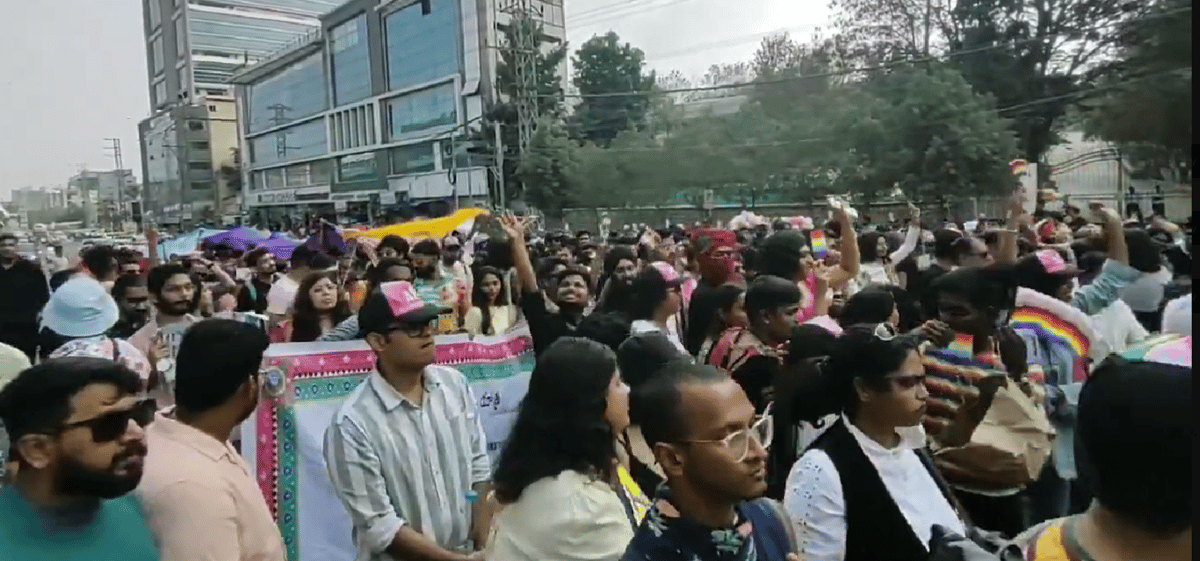
Till date, she said, only two hearings have been organized so far. Due to a lack of awareness, there is no public outcry about it.
The activist further delved into the formation of a trans council by the Central government to look into the rights of the community.
She explained, “The Transgender National Council has representatives from different regions, but India is a very diverse country. It is not possible for only five representatives to look into the issues faced by all trans people. The council also lacks religious and cultural diversity.”
Sharing her personal story about her trying to work with the government for inclusion, Santa said, “In August 2023, I received a verbal invitation from the Social Welfare department, and I learned about the state government allocating Rs 10 lakh for the transgender community’s welfare.”
Later, she being the only trans woman in an expert committee had to leave India due to growing ethnic violence in Manipur.
“While abroad, I was notified about the committee’s first meeting and expressed safety concerns, but the staff proceeded without me. The committee decided to conduct a survey with ASHA workers, excluding community members – raising questions,” she said.
Her formal email to appoint a substitute went unanswered, and she criticized the feasibility of the survey amid violent clashes – emphasizing the need for community representation and privacy considerations.
“The government is compelling us to resort to begging or indulging in sex work,” claims Nikita Mukhdyal from Maharashtra.
A government job aspirant and a trans woman, she angrily stated, “It is almost as if the government is forcing us to beg or continue with sex work.”
Many transgender individuals sustain their lives by begging or engaging in sex work. This not only leads to stigmatization but exclusion from the self-proclaimed “posh” areas of the society as well.
“Our community is forced to live in ghettos. Since most of us either beg or perform sex work, we are not allowed to live in certain spaces,” revealed Mukhdyal, adding, “We might also not be able to afford a good living standard. We are regularly harassed. This further affects our physical and mental health.”
“Even after the NALSA judgment of 2014, there is no horizontal reservation for us. I am a Dalit trans person. Binary genders from the SC community have reservations. Where is mine?” she asked.
She said there is no provision for such persons in employment or educational institutions.
“How are we supposed to earn money?” she asked, continuing, “On papers, hospital beds and washrooms are being made for us, but I dare you to go on the ground and look into the facts”.
“We are constantly going to courts even when we do not have money or the means of earning livelihood. The people in power want us to live without any autonomy,” she added.
Lawyer Padma Lakshmi from Kerala alleges that “no transgender person has received a house under the state-initiated LIFE Mission.
Lakshmi, the first trans lawyer from Kerala, acknowledged, “South Indian states are still comparatively better than the north Indian states, which is mainly due to the state governments.”
Talking about the strides taken by the state of Karnataka, the lawyer said it is the only state that has issued a 1% horizontal reservation for the trans community. The Kerala government has announced reservations in the education sector but not in employment.



